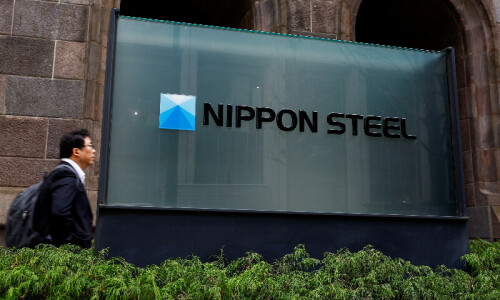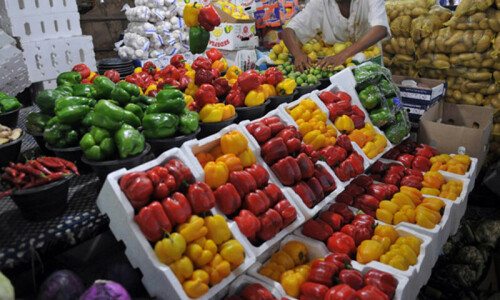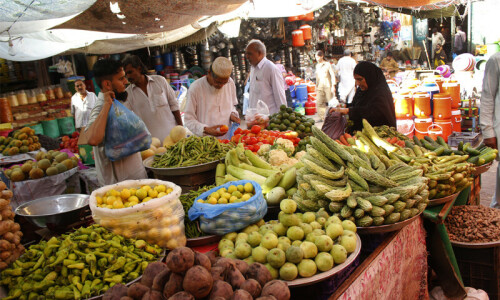THE Middle East is littered with missed opportunities, lost chances and dreams turned to dust. The Iranian nuclear deal is now heading in the same direction.
President Hassan Rohani, hero of the hour and Iran’s new Mr Good Guy in America, even obtained the support of Iran’s Supreme Leader, Ayatollah Ali Khamenei, when he signed off on the agreement with six world powers last year to reduce the country’s nuclear activities in return for an end to Western sanctions. But he’s beginning to look like a patsy.
And all of the old Iranian revolutionaries, the sons of martyrs and the war veterans and the Revolutionary Guard Corps and the managers of its billion-dollar conglomerates are turning out to have been right all along.
The sanctions have been lifted — but they haven’t been lifted. Western investments are not, despite all the promises, pouring into Iran because banks — especially European banks — are too frightened of breaching the rest of America’s sanctions laws to do business with the Islamic Republic.
Washington both giveth and taketh away; it’s a slogan that every Iranian president should learn.
Mohamed Khatami was the only real statesman the Middle East produced in half a century and he was elected president of Iran in 1997. He wanted a “civil society”, the nearest you can get to a secular nation ruled by Shia democracy-necrology-government for and by the dead.
But the United States treated Khatami with scorn — and so the crackpot Mahoud Ahmedinejad became the next president, a man with whose ravings America’s right-wing felt far more comfortable.
Hadn’t they said all along that Iran’s leaders were anti-Semitic nuclear crazies, even — this from the Israelis — worse than Hitler? Now Rouhani, the man-America-could-do-business-with, may lose next year’s presidential election because he, too, forgot the slogan which, at its simplest, reads: don’t trust America.
Iran has not been reintegrated into the global financial system — and it’s not going to be — though the Chinese will be happy to do business.
AYATOLLAH THE ‘SAVIOUR’: Khamenei’s supporters are now suggesting that the Supreme Leader — not the shrewd but naïve president — is the great hero of modern Iranian history (after Ayatollah Ruhollah Khomeini, of course). The banks, he says, fear the Americans who “have not acted on their promises and [only] removed the sanctions on paper”.
Worse still, he’s right. “Khamenei’s life is the one you should be writing about,” one of his believers announced last week. “He is the saviour.” Yes, thanks to America.
For many of Europe’s largest banks won’t do business with Iran for fear of breaching other US sanctions, which have nothing to do with the nuclear agreement — but a lot to do with US agencies and prosecutors, hunting for evidence of Iranian money laundering, the financing of “terrorism” and monetary crime.
The French BNP Paribas shelled out £6.3bn for its Iranian dealings a couple of years ago — over five years, along with StanChart and HSBC, the figure comes to a whopping £10.7bn.
So why should the UK’s Standard Chartered, Societe Generale, Credit Suisse or Deutsche Bank line up to pay more fines just because their governments want to do business in Tehran? Some American bankers — this from the Economist — won’t even hand over their business cards to Iranians. Now that’s what you call fear.
But let’s move, for a moment, to Beirut. Here the Lebanese Central Bank is caught up in a crisis with Hezbollah, the Shia militia which drove Israel’s occupation army out of Lebanon in 2000 and is now fighting and dying to preserve Bashar al Assad’s government (also, of course, under sanctions) in Syria.
Whether — in Washington’s eyes — the first is a greater crime than the second, the fact is that no Lebanese banks are now allowed to have any dealings, or hold any accounts involving, Hezbollah members or their supporters.
Lebanese banks which break these rules will lose their right to deal in US dollars.
The Hezbollah leadership has abused the governor of the Central Bank, Riad Salameh, for bowing to America’s demands, claiming that US sanctions are targeting the entire Shia community in Lebanon. Poor old Riad is trapped — a brilliant banker who followed several pretty indolent governors, now forced to implement
sanctions over which he has no power and which will destroy any Lebanese private bank disobeying the American rules imposed by the Lebanese Central Bank.
Since 65 per cent of all their deposits are in dollars — and 70 per cent of all their transactions — breaking US rules means that Lebanese banks would go out of business.
The US Office of Fair Assets Control has named 99 accounts with alleged connections to Hezbollah, including charities, schools, companies and television stations. Even Hezbollah MPs, legally and fairly elected to the Lebanese parliament, two of whom are ministers, can no longer keep bank accounts. Now you may agree that the West has every right to clip Hezbollah’s millions.
“Terrorists” or not, they are more powerful than the Lebanese army, widely blamed for the failure to elect a Lebanese president and dangerously involving Lebanon in Syria’s civil war. For that matter, no sane Western banker or government wants to give carte blanche to Iran’s armies of dodgy businesses linked to secret regime bank accounts or shady military operations.
But among the Lebanese banks obeying Salameh’s US rules is the country’s wealthy Blom bank; and only this weekend a 3-4kg bomb blew up outside its headquarters in the swish Verdun district of Beirut. It was a Sunday night, there were few people around — only two were slightly hurt — and the police quickly concluded it was more symbolic than military.
When the Lebanese want to kill, they do so with Pablo Escobar thoroughness. But the thundering of shattered plate glass windows told its own story. Was this a Hezbollah warning? Unlikely, said some. Hezbollah are not that crude. Well, maybe.
But you can see the picture. While Iran cannot break free of sanctions from which it thought it had been unshackled, its own paid militia in Lebanon — a nation which a Shia prelate once described as “the lung through which Iran breathes” — is being caught up in the same financial net. So it’s not difficult for the Iranians to spot what they call in Persian the “dasisa” — and what the Hezbollah, in Arabic, refer to as the “muamara” — which means, quite simply: THE PLOT.
Decide for yourself if it’s true. But in Iran, the lifting of sanctions is a promise un-kept, the Revolutionary Guards are smiling and the nuclear deal is, surely, going downhill. A dream, in other words, fast turning into dust.
By arrangement with The Independent
Published in Dawn, June 18th, 2016













































